‘Everybody’s Always Up for Sale’: How International TV Distributors Are Navigating a ‘Cautious’ Market
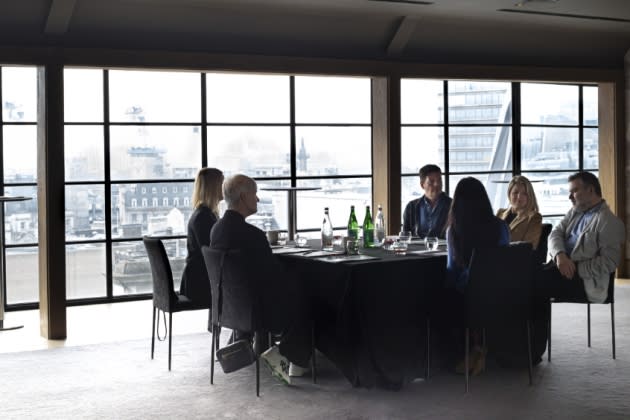
Television exports to China may be slowing but that’s not true for exports to Asia as a whole. Co-production deals are back in vogue. And when it comes to the potential for further consolidation among top European production banners, well, one industry veteran declared, “Everybody’s always up for sale.”
These were some of the insights shared during a roundtable discussion among top international distribution executives, who gathered with Variety ahead of the annual London Screening sales market, which runs this week.
More from Variety
Participants in the wide-ranging conversation were Prentiss Fraser, president of television distribution for Fifth Season; Louise Pedersen, CEO of All3Media International; Tim Mutimer, CEO of Cineflix Rights; Jonathan Ford, managing director of Abacus Media Rights; and Bea Hegedus, executive managing director of distribution at Vice Media.
Read on for our wide-ranging discussion on the state of distribution:
What signs are you seeing of a cautious market?
Jonathan Ford (Abacus): Many studios are reassessing their organizations. One executive told me that they’ve had $27 million cut from their acquisitions budget for international for the next year. That’s a big cut.
Prentiss Fraser (Fifth Season): It’s unsettling. You might start out your week with one buyer and finish out your week with someone new you need to speak to. It was quite unstable over the last year. The big companies have been keeping all of their content to themselves for the last few years, and they’re now releasing some titles. It’ll be interesting to see who comes to the May LA Screenings, for example, because we’ve seen several [studios] not in attendance over the last five years. It’ll be interesting to see what kind of inventory opportunities are on the market.
Tim Mutimer (Cineflix Rights): It brings opportunity as well, because all those global players are looking at their business model and trying to work out how they fund it. Our show “Last King of the Cross” was commissioned by Paramount+ in Australia, but they only took it for Australia. But because it was an English-language Australian show, we saw the international potential, and had the opportunity to come in and invest for the rest of the world. They can’t afford to buy everything for their platforms globally, so it gives distributors an opportunity to get some great content to add to the catalogue.
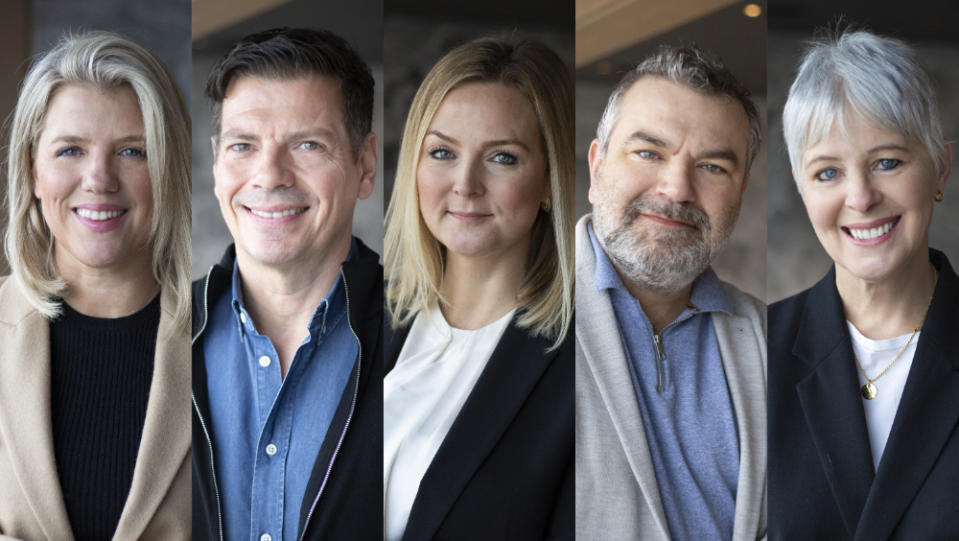
How are you navigating COVID costs? Are you back to normal now in terms of your pipeline?
Louise Pedersen (All3Media International): There are still COVID costs in that you still have producers saying they have to test all the time. I think we’re out of it, but the tests are still a part of the overall increase in production costs. The costs associated with COVID haven’t completely gone away.
Prentiss Fraser: You often get surprises after the fact, where it’s like, “Oh, actually, there were some additional COVID costs that we didn’t account for.” It’s a bit surprising that they’re not being accommodated for at the earlier stages at this point, since we’ve been through two years of this pandemic. We should be slightly more organized on that front.
Jonathan Ford: Insurance actually costs more than the cost of incurring the COVID costs. So with most of our productions, we’re now seeing producers say they would rather not take insurance out.
How are you managing the skyrocketing costs for drama production?
Prentiss Fraser: The cost of productions are really impacting the way we’re planning for our business, because the shows that we’re producing are very expensive. Shows like “See,” “Severance” or “Nine Perfect Strangers” are incredibly expensive series. We just have to be really smart about how we’re planning in advance. We’re looking at different locations now than we probably would have in the past. We’re looking at a production in Canada right now where, usually, it would have been [shot in] Vancouver or Toronto. And now we’re looking at all of the provinces and really trying to figure out exactly where we can get the most money on screen.
Tim Mutimer: We try and work with producers to get to greenlights. They’ll come to us with a big deficit, and sometimes we’ll say, “Look, this deficit is too big for just a distribution advance to get you there.” So we’ll work with them and try and bring in a pre-sale or co-producer.
Jonathan Ford: We have the CBC comedy “Sort Of” and it’s gone everywhere. Like Cineflix, we came in and helped them get some of the pre-sales to complete the funding and made an investment to get it there as well.
Bea, how did you go about setting up a distribution outfit for Vice?
Bea Hegedus (Vice Distribution): When I first talked to them about this idea, the biggest problem we had was that we weren’t finding the audience of Vice. The go-to-market strategy was strange…and yes, [TV channel] Viceland wasn’t one of the favourite ones. So we shut down all the channels around the world except the U.S., which really works. The Vice DNA is very young. Our audiences are on social media, FAST channels and AVOD, and they’re watching us on their phones. So, it made sense that we start looking at how we can distribute this content better.
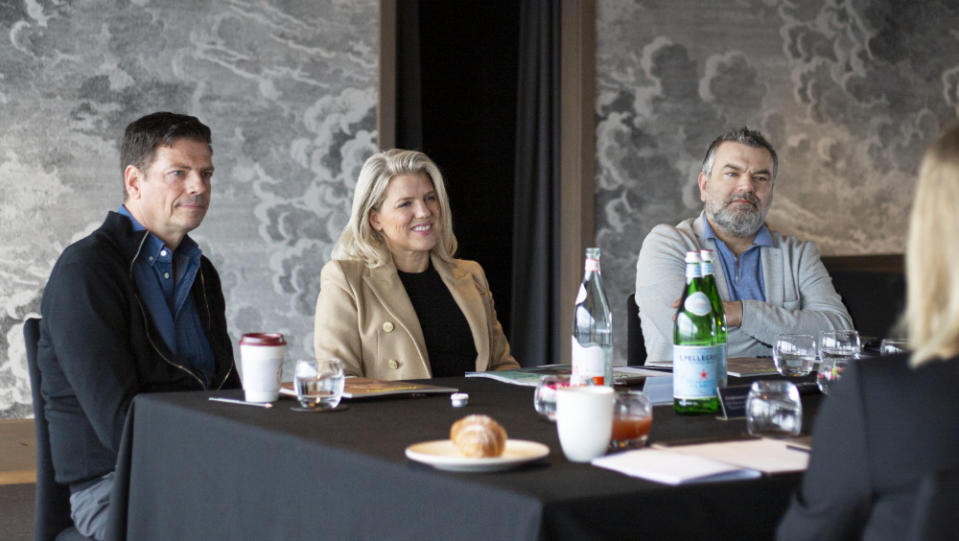
How will you grow Vice Distribution?
Bea Hegedus: What we’re trying to do now — and what we’re helping our clients with — is bringing younger audiences to platforms and channels. We are making a lot more premium content now, and we’re heavily involved in what we’re making. We are doing originals in the U.S. for not only Vice TV, and this will broaden our scope of what we are making, with higher profile and higher budgets. Scripted is coming next.
Post-pandemic, the co-production model seems to be making a comeback. How key are they to your business model right now?
Prentiss Fraser: I think co-productions were probably slightly off-trend for a while and the global giants had all the rights, but in the background, all of us have been doing co-productions the entire time. Going forward, it’s going to be a little bit bumpy in the short term, but it’s about partners who haven’t had to share in the last few years learning how to share again, and being good [collaborators] around branding, assets and marketing — all of those nuances that create an original show for more than one person.
Louise Pedersen: No two co-productions are ever the same. It’s always a different set of editorial voices. It can be different broadcasters; it can be a different level of creative control. To work well they really rely on everybody understanding who’s doing what. It sounds very simple, but it can get quite complicated.
Jonathan Ford: In a world where production costs are going up and unfortunately pure license fees from our partners aren’t necessarily increasing at the same rate, it does mean those co-productions — rather than the distributor putting in a nice, big advance against the licensing — will become more key.
Warner Bros. Discovery recently sold 27 HBO Max European originals to Paramount Global and Comcast’s joint-venture streamer SkyShowtime. How does a deal like that affect you?
Prentiss Fraser: It indicates that there aren’t as many inventory issues that the platform’s had in the past, where [distributors] were able to be quite opportunistic. It doesn’t impact our company as much, because we have such a boutique approach and we’re selling single titles, but I think it will definitely impact the distribution business if you’re selling high volume.
Jonathan Ford: Obviously, as independents, we’d like them to keep all their programming themselves, because it gives us the opportunity [to sell to others]. Releasing it back into the market will impact some of our opportunities. I’d rather they didn’t, to be honest, but I fully understand their reasoning why.
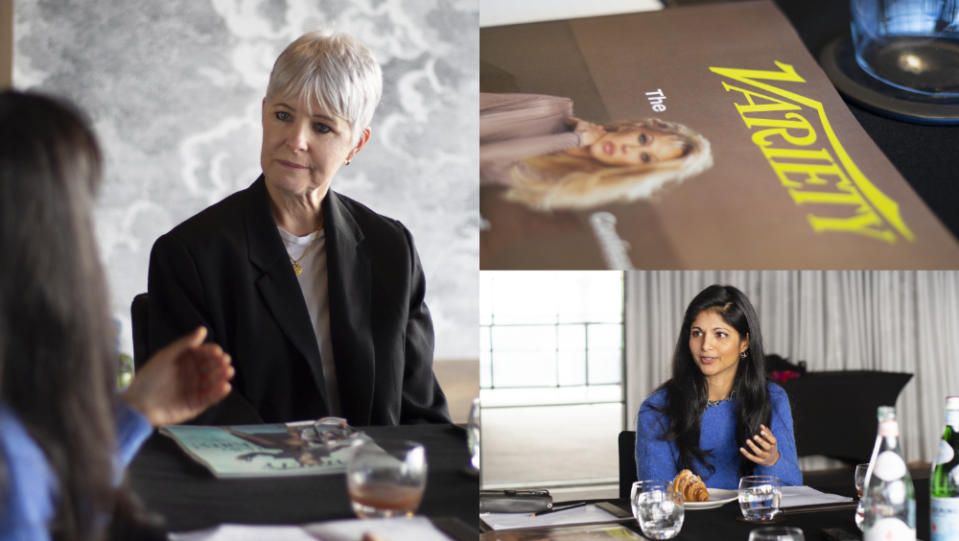
How closely are you looking at M&A opportunities in the current climate? All3Media’s last big acquisition was in late 2020 with natural history producer Silverback.
Louise Pedersen: There’s so much activity in this space. Everybody’s always up for sale. There are companies that are brought to market and we always look at them. It’s got to be the right fit strategically, but we’re always looking.
What about the future for All3Media? It’s co-owned by Liberty Global and Warner Bros. Discovery. But John Malone said last year that it’s unlikely he will sell.
Louise Pedersen: They are very supportive shareholders. They continue to back All3Media Group to make investments. Our relationship with Discovery Channel and with HBO is arm’s length. We don’t have a sort of special relationship with our shareholders on the content side.
Speaking of M&A, it’s been almost a year since CJ ENM bought 80% of Endeavor Content, now called Fifth Season. What does this mean for your content slate?
Prentiss Fraser: There’s definitely more collaboration happening on the studio side as it relates to film and television production. There’s a lot of work being done there on certain projects and working together and leveraging the relationships in different countries. For example, bringing in amazing directors or talent from both sides and creating projects together. There are some interesting things to watch in that space going forward.
What about Cineflix Rights, Tim? There were rumors swirling at Mipcom that Fremantle was circling the company.
Tim Mutimer: We’re focused on growing the business, so that’s what I’m looking at. And we’re growing it organically. We’re looking at IP, we’re launching fast channels, and we just added someone in Latin America. It’s a great business, and I would look at it. But as far as I’m concerned, I’m just focused on growing organically.
We’ve seen a wave of consolidation among international distributors, where a lot of the smaller and mid-sized players have been acquired by larger super-indies. How does this impact producers? I imagine it’s tough for them to see their titles disappear into larger catalogues.
Louise Pedersen: Producers have a choice. Last year, 50% of our business was third-party producers, so they all chose to come to us. They might have chosen to come to us because we’ve got money to invest. And that’s something that I think for a very small distributor is a problem: especially if you want to get into the scripted space, you need some deep pockets at the moment to help finance the shows. And that’s increasingly true in factual, particularly if a producer hasn’t got time to wait for you to attach co-production partners. As a producer, you choose who you think is going to do the best with your content — and that might be a specialist; it might be a bigger distributor. But what I would say is that as a bigger distributor, things don’t disappear into our catalogue. Our content teams are split by genre. Our sales teams have a very strong geographical spread with offices around the world. So it’s not like there’s a factory line of things coming in.
Are talent deals still important for distributors?
Tim Mutimer: We moved away from doing first-look deals with producers to really look on a case-by-case basis at the content that really excited us.
Jonathan Ford: You need to make sure the objectives of a first-look deal are mirrored by both sides and it’s not just that the producer needs money, but also that you can grow that pipeline from the producer into the distributor. If you do a first-look deal then all the producers’ titles go into a streamer, it’s not the most productive first look. It’s about working out that balance.
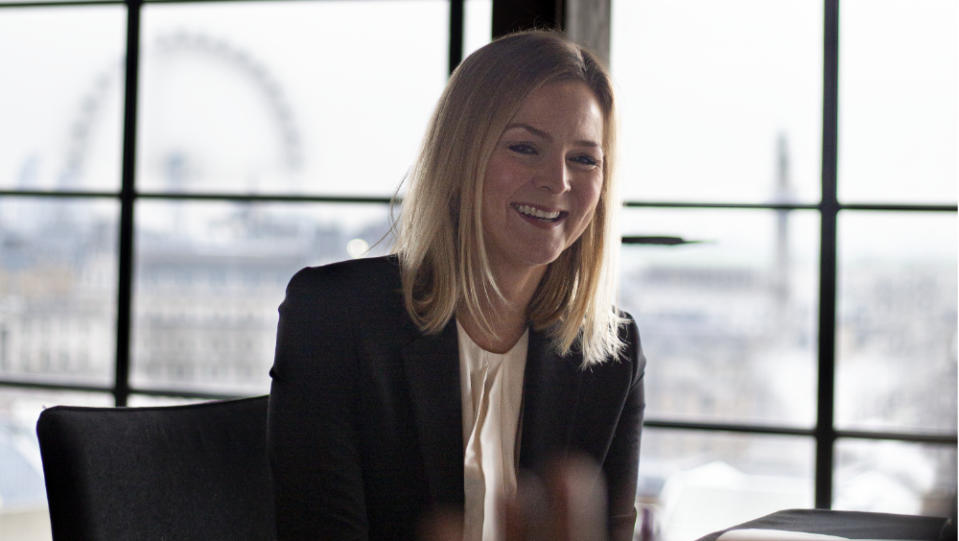
How are you working — or not working — with markets like Russia and countries in Asia?
Louise Pedersen: To be candid, Russia wasn’t a massive territory for us. I mean, it was worth a decent chunk of money, but obviously we’re legally prevented from selling to Russia, and probably would choose not to anyway. China has definitely slowed down in the last couple of years. We went through a phase of doing quite a bit of business in China, but it’s very hard to predict the level of business that you’re going to deal with. It’s very complicated to navigate in terms of who’s making decisions.
Jonathan Ford: Unscripted is easier in China, like natural history and science, but not scripted. There used to be a lot of U.K. drama getting into China, but that’s really become limited in recent times. [Outside of China], in some sense, Asian territories have become harder for English language in recent years because of the growth of their own identity.
Bea Hegedus: We are dialling up production in Asia because we find it’s easier to move content around Asia if it’s produced in the region. We have an Asian gun violence documentary, where for each country there are different stories. It’s quite interesting for the Americans as well, so we have sold it everywhere around the world.
Louise Pedersen: India, in particular, has been a really strong market for scripted formats. We’re now into our sixth scripted format there.
All3Media had a huge hit on its hands with “The Traitors.” That show came out of the Netherlands, but you sold it wide before the U.S. and U.K. versions even aired. That’s surprising given buyers sometimes like to see the U.S. and U.K. versions before betting on a format. How did you pull it off?
Louise Pedersen: The pitches in the U.S. and U.K. were very joined up. And at the time, NBCUniversal and the BBC had announced they were progressing with the format. The fact that they were already quite aligned helps. It was also just a show that really stood on its own merits. The Dutch version was really accessible, and well-made. Everyone who watched it could see how this would work in English language.
Is it right that the show is now in all major markets, including Germany, France, Australia?
Louise Pedersen: Yes. It’s got a second series everywhere. It’s not officially announced, but the negotiations are happening.
The London TV Screenings runs from Feb. 27 to March 3. Check out our picks of the hottest shows on the market.
Best of Variety
From 'Daisy Jones & The Six' to 'Blonde': Books Made Into Movies and TV Series That You Should Read
Oscar Predictions: Documentary Short - Could ‘Stranger at the Gate’ Surprise on Oscar Night?
Sign up for Variety’s Newsletter. For the latest news, follow us on Facebook, Twitter, and Instagram.

